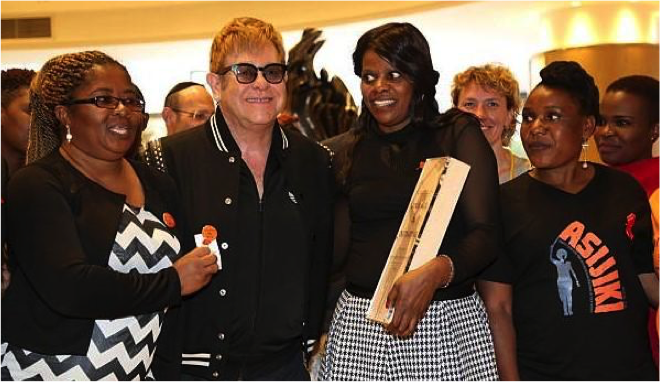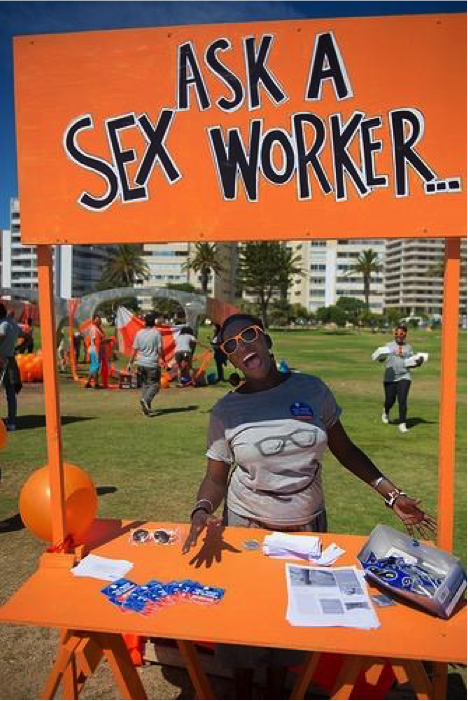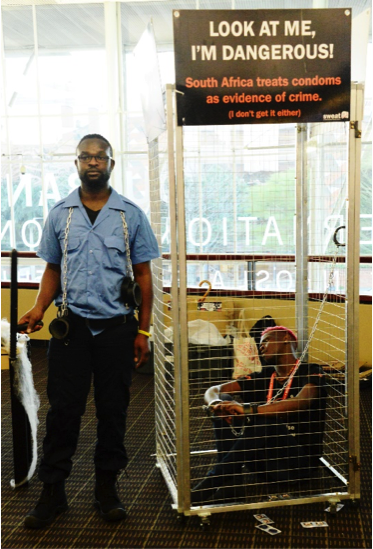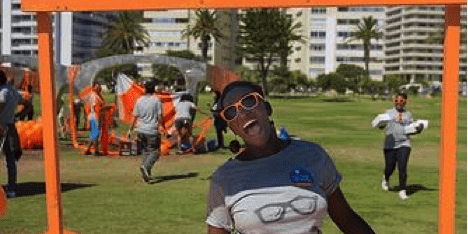This article was published by Global Open Rights:
Humour is one of the most effective tools in our activist arsenal, because it has the ability to bring people together from a space of shared connection rather than fear.

Photo: Ishtar Lakhani (all rights reserved)
My eyes struggle to focus. I find myself in yet another fluorescently lit conference room. Even though it is summer, I carry a jersey because someone seems to think that activists cause less trouble in sub-zero air-conditioning. I listen to endless streams of panels (and “manels”), countless evidence-based reports, and incessant conversations with well-meaning bureaucrats that I assumed were foreign visitors based on their alien, letter-based language. I hear myself saying “We did just launch the SW HIV NSP with SANAC, but the DPME didn’t include it in their KPI’s for DoH or DoJ or DSD”. It turns out, I can in fact speak Acronym.
This state of affairs has become far too common in how we as human rights activists think about platforms and mechanisms to change harmful policies. But this does not have to be the only way. We have forgotten how activists historically have used creativity to reach audiences on an emotional level to trigger feelings of joy rather than anger. My experience in the South African sex worker rights movement shows how creativity, imagination and (heaven forbid) fun can influence and capture the hearts and minds of the public.
Not long ago, our movement had to accept that what we were doing was not working. As a sex worker rights activist fighting for the full decriminalisation of sex work in South Africa, there was little room for frivolity. The lived reality of sex workers in a criminalised context is one of exclusion, ostracism and brutal violence, with little access to fundamental human rights. These experiences have saturated our strategies, narratives and tactics with the language of oppression and powerlessness
So we asked ourselves: what is the story we want to tell and how do we want to tell it?
We want to tell the story of humanity, strength, agency and the collective power of sex workers. South Africa is home to the largest, independent sex worker led movement on the continent, Sisonke. The very existence of Sisonke is something to be celebrated. Unfortunately, this doesn’t fit into the well-established Hollywood narrative of the “dark, seedy, underbelly of prostitution”. So we decided we needed to try something different if we wanted people to listen.
Our first attempt at a more approachable and festive vehicle for our very serious message was a bright orange “Ask a Sex Worker Booth”, created with the Centre for Artistic Activism.

The booth was accompanied by a carnivalesque environment of music, prizes and free hand massages (because once you have someone’s hands, they have to listen to you). This new approach vastly improved our public engagement, shifting how people see, and more importantly, feel about sex work. People now approach us to find out how they can get involved in our work. We have journalists covering our events because we give them a more compelling visual. Another surprising result has been the national government approaching us to set up our booth in parliament.
However, people ask how activism that is creative and fun can help with “serious” issues like fundraising? At the 2016 International Aids Conference, the largest global health conference which usually feels like the vignette that opened this article, we had many typical advocacy goals: “be visible”, “raise awareness”, “ensure the inclusion of sex workers”. We used various creative interventions to achieve these goals. The highlight was a LED-lit red umbrella, the international symbol for sex worker rights, beside a live digital clock that reminded speakers how long they had been talking without mentioning sex work.

Another tactic was to harass, arrest and “jail” conference delegates in our mobile jail cell for carrying condoms, in order to illustrate an oppressive and nonsensical experience of sex workers globally.
Amidst all of this, we had one impossible goal: to meet Sir Elton John.
Initially this was purely out of a desire to meet one of the greatest musicians of all time. But upon further investigation, we recognised that The Elton John AIDS Foundation is one of the few foundations that supports sex workers and the decriminalisation of sex work. But how do we meet someone whose personal assistants have personal assistants? Is trying to achieve this goal really an effective use of our limited time and resources?
To access this global superstar we invented the inaugural “Asijiki Award for Courage and Initiative”, because who doesn’t like being honoured? After relentless requests, we finally met, sang and danced with Sir Elton in the lobby of his hotel. This playful intervention massively increased our media coverage and visibility and put us officially on the Foundation’s radar. More importantly, this achievement fundamentally changed the way we brainstorm, as now we force ourselves to push past what we perceive as “achievable”.







